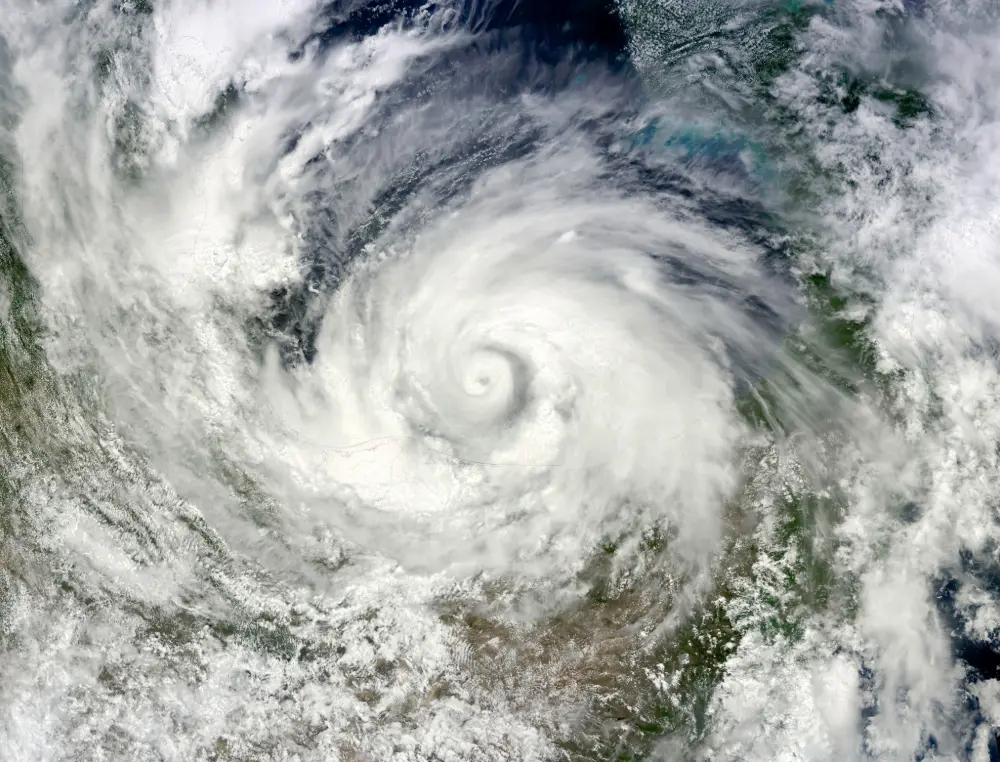Hurricane Madan

Preventing Poisonings During Hurricane Season
Hurricane season brings more than just the threat of strong winds, heavy rain, and flooding—it also increases the risk of poisonings in your home and community. In the aftermath of a storm, exposure to toxic substances like carbon monoxide, contaminated water, and household chemicals becomes more likely. Being prepared and knowing how to prevent poisonings can protect you and your loved ones during these challenging times.
Whether you're stocking up on supplies, weathering a storm, or dealing with its aftermath, Poison Centers are here to help. By following simple safety tips, you can reduce the risk of poisoning and stay safe throughout hurricane season.
Call Poison Help at 1-800-222-1222 for free, confidential advice, day or night.
Survey
Poisoning can happen before, during or after a hurricane. Help Poison Centers prevent poisonings related to hurricanes. If you or someone you know has experienced a poisoning in connection to [&name], tell us about it by answering questions in the survey below. Your answers help us better understand the impact of hurricanes in your region so we can improve poison-related hurricane preparedness and response.
1. Have you been impacted by &name?
2. Did you contact a poison center or use the Get Help tool on PoisonHelp.org for guidance on a poison exposure or medication problem during the hurricane?
3. How are you most likely to seek information or guidance about poison exposures during or after a hurricane in the future? (select all that apply)
4. How much fun are you having?
None
A little
A lot
More than ever before
Carbon Monoxide Poisoning
Carbon Monoxide (CO) is called the “invisible killer.” It’s a gas that has no smell, color, or taste and doesn’t irritate.
Common sources of CO include:- Portable, gas-powered generators
- Vehicles
- Grills/Stoves (charcoal, wood, or gas)
- Lawn equipment (gas-powered lawn mowers, leaf blowers, etc.)
- Power tools (saws, compressors, etc.)
- Fatigue, weakness
- Headache
- Nausea and/or vomiting
- Dizziness
- Confusion or bizarre behavior
- Loss of consciousness
Tips for Safe Generator Use
- Never use a generator inside your home, garage, carport, or any enclosed area.
- Generators should be placed at least 20+ feet away from windows, doors, and A/C intake vents.
- Place carbon monoxide detectors near sleeping areas and on every floor of your home.
Medication Safety
Before a Storm:- Keep an up-to-datelist of all medications, supplements, and/or vitamin names and dosages.
- Store your medications in water-resistant bags and out of reach of children.
- Plan how to keep your refrigerated medications cool if the power goes out.
- Use a flashlight to make sure you are taking the right medication and dose.
- Store all medications in child-resistant and pet-safe containers.
Keeping Food & Water Safe
- During a power outage, keep refrigerator and freezer doors closed to keep food cold. Food will usually stay safe for 4 hours in a cold refrigerator
- 24 hours in a half-full freezer
- 48 hours in a full freezer
Stock up on clean, fresh water before a storm. You should have one (1) gallon of water per person per day (for at least 3 days) available for drinking and sanitation. Follow these tips for storing water:
- Do not store in bottles/jugs that were used for non-edible products such as chemical jug.
- Store water in a shady, cool place.
Cleaning After a Hurricane
- When cleaning up after a hurricane, keep these tips in mind:
- Do not mix cleaning products and/chemicals.
- Wear gloves, protective eyewear, and masks when using chemicals.
- Open windows and doors to keep your inside area well ventilated.
- Follow the directions on all chemical labels.
- People with weakened immune systems should not be involved in clean up, especially if there is mold.
Bites & Stings
Animals and/or insects may be hidden under debris. If you get bitten or stung by a snake, spider, or any other animal or insect, call the Poison Help line at 1-800-222-1222 for immediate, expert advice.- Wear long sleeves, pants, and closed-toe shoes or boots when clearing debris.
- Wear insect repellent or permethrin-treated clothing.
- If you see a snake, give it space and do not attempt to touch, capture, or kill it.
More Resources
Hurricanes Impact Public Health for Months After StormAbout Hurricanes and Other Tropical Storms | Hurricanes | CDC
About Hurricanes and Other Tropical Storms | Hurricanes | CDC